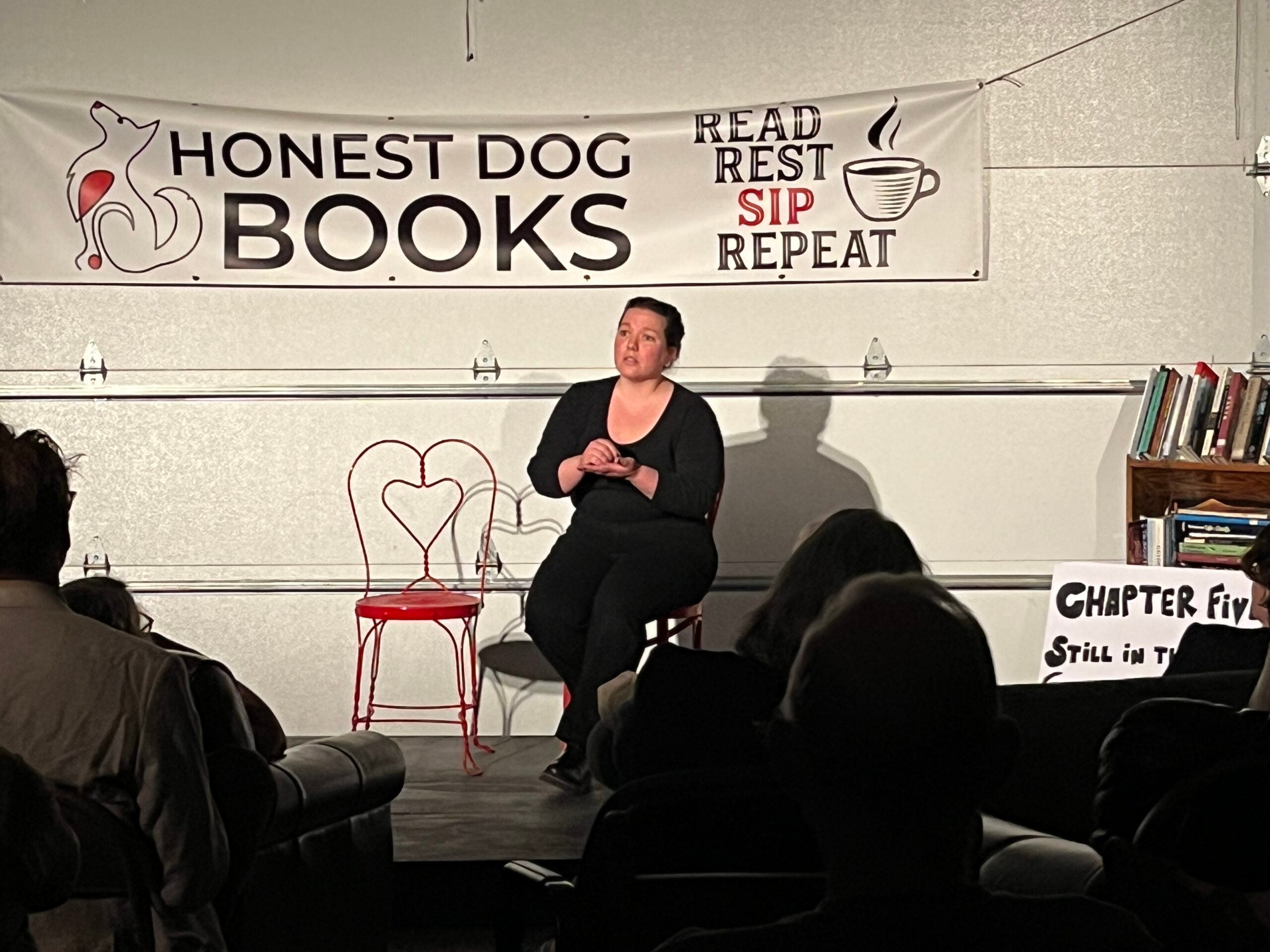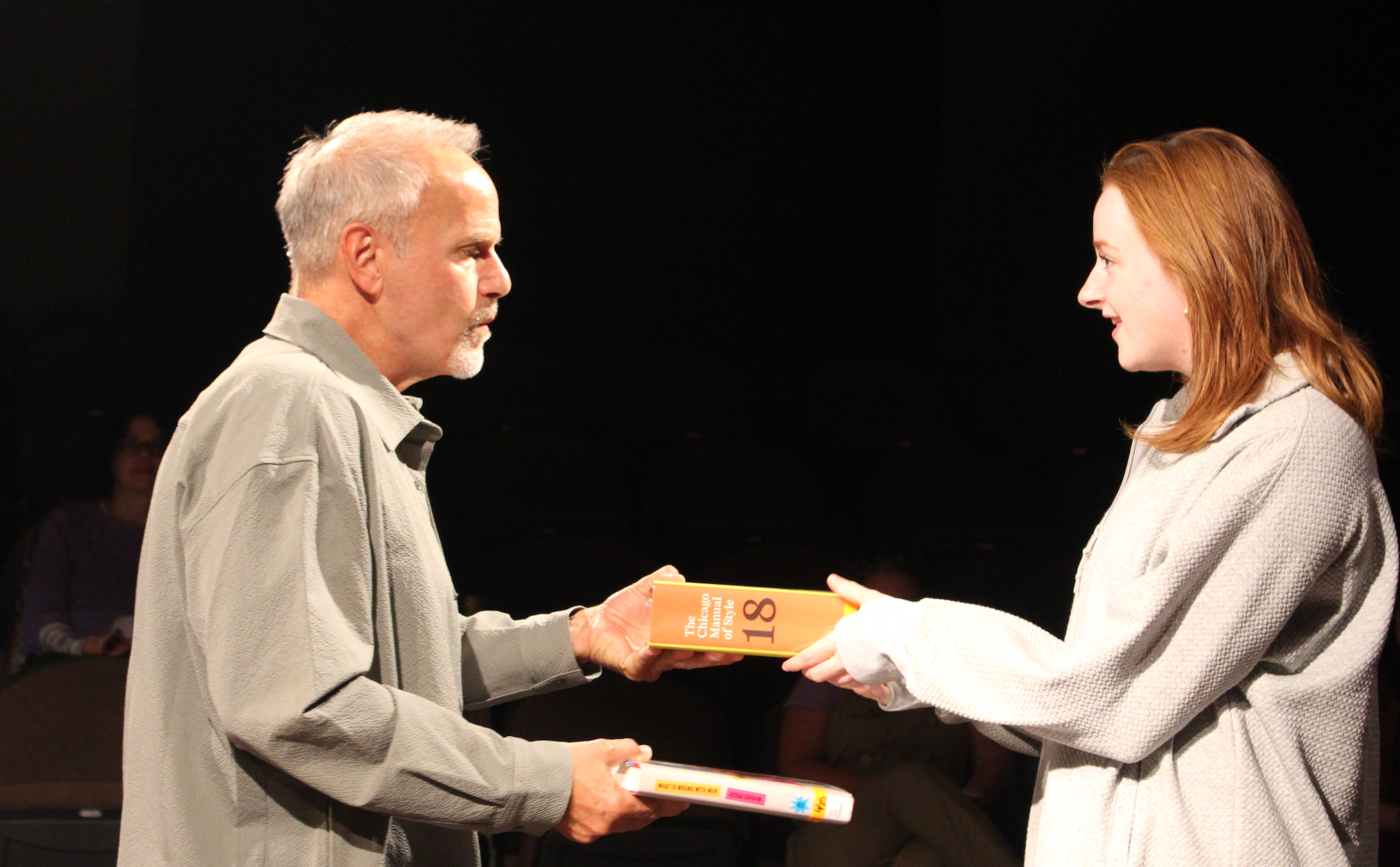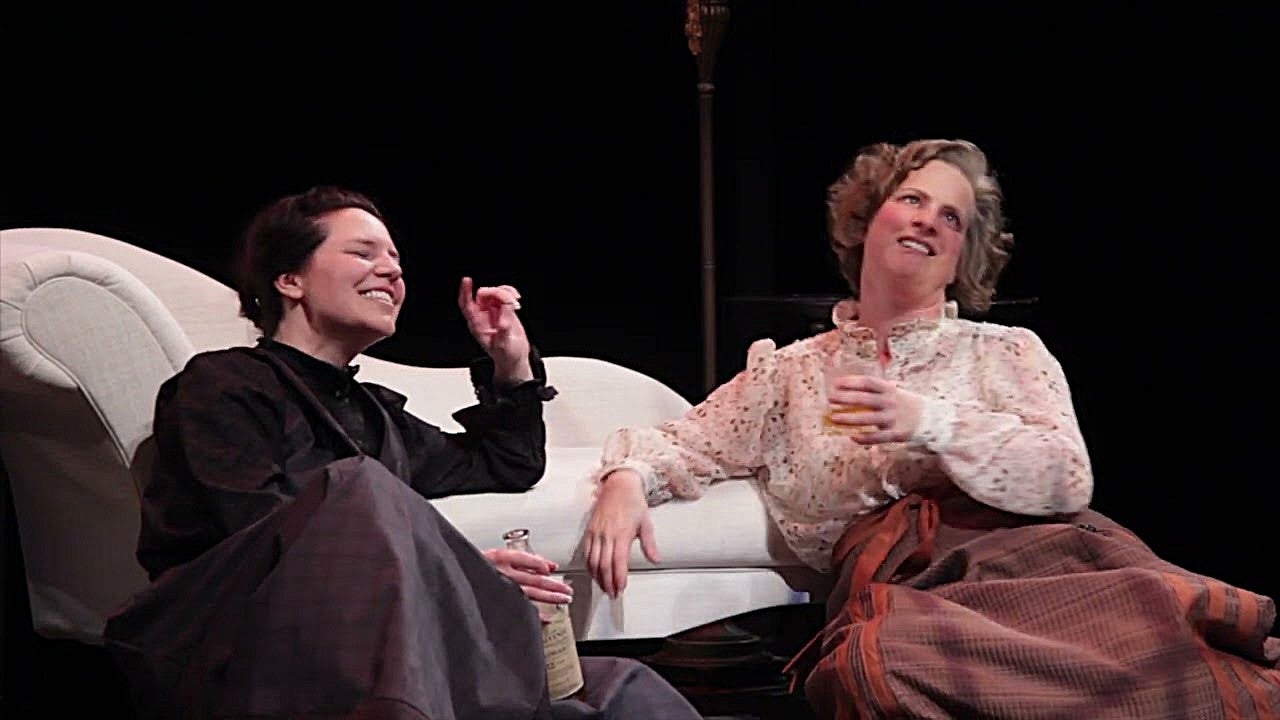Jessie Lillis believes that Shakespeare is for everyone.
“I fell in love with Shakespeare at a pretty young age,” she told WPR’s “Wisconsin Today.”
Lillis knew for a long time that she wanted to start her own theater company, but she thought that would happen much later in her career.
News with a little more humanity
WPR’s “Wisconsin Today” newsletter keeps you connected to the state you love without feeling overwhelmed. No paywall. No agenda. No corporate filter.
Then, after finishing a master’s program in theater arts at the onset of the COVID-19 pandemic in 2020, she saw an unexpected opportunity to put her dream into action much sooner.
“It was … a chance to take a break and think about what things are important to me as an artist,” she said. “What are the sorts of things that I want to be making? Where are the places that I’m seeing needs for theater?”
Later that year, Lillis co-founded Starling Shakespeare Company with collaborator Heron Kennedy. Their vision was to make Shakespeare approachable for diverse modern audiences and create the kind of theater company that could exist “in a post-COVID world,” as they explain on Starling’s website.
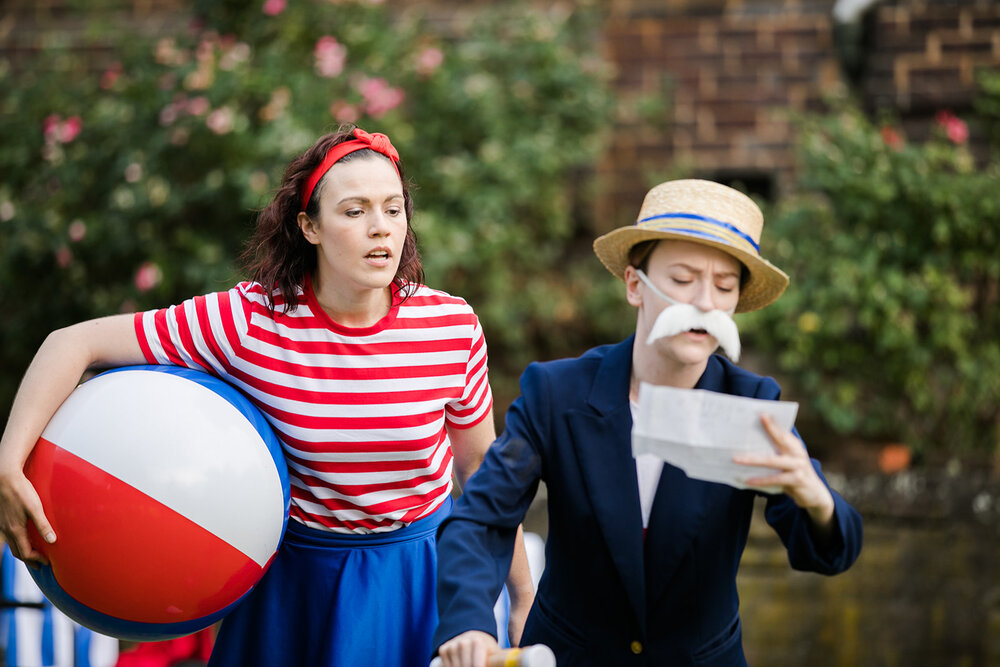
For them, that meant adopting a touring model where the company can perform in different locations throughout a season rather than establishing a permanent residency at one theater.
“My thought with starting Starling was that we can bring these really classic stories directly to people where they are,” Lillis said. “So we do touring shows. We try to keep them either low- or no-cost.”
This season, Starling’s “home base” is at Ripon College, where Lillis got her undergraduate degree. The cast is rehearsing there for the first part of the summer before heading out on a tour of the Midwest, including several stops in Wisconsin and a month-long residency on Mackinac Island.
They recently performed their season premiere of “Twelfth Night” in Ripon and are heading to Green Lake on July 13 for their first performance of “Henry IV.” The tour dates are listed on the website.
Performing Shakespeare in the park
From the beginning, Starling has embraced performing outside in parks and other outdoor spaces where audiences felt more comfortable congregating.
Lillis explained that performing Shakespeare outside is part of a centuries-old tradition stretching back to Shakespeare’s own time, when many of his plays were performed at The Globe, an outdoor theater in London.
Back then, “they didn’t have the ability to dim the lights and have the audience sit in the dark,” she said. “That technology didn’t exist.”
Being outside also adds an extra dimension to the plays, which often take place in nature or evoke natural imagery. “We’re referencing things like the sun when the sun is literally above our heads,” Lillis said.
For Starling, perhaps the biggest advantage to doing Shakespeare in the park is that it helps to create a playful and welcoming atmosphere.
“I think being in a more casual outdoor environment invites that interactive environment that is really important and is baked into the text of Shakespeare,” Lillis said.
Working with a small ensemble
Starling is a “small-cast Shakespeare” company with only five actors rotating through all the roles in a given play.
Lillis says this can make the plays more approachable and help put audiences at ease.
“You’re not showing up and seeing 25 people in ruffs and collars, and they look so foreign to anything that’s familiar,” she said. “You see five guys in sneakers run on stage, and we’re all playing multiple parts.”
The small casting also allows for actors to dive into multiple roles each season.
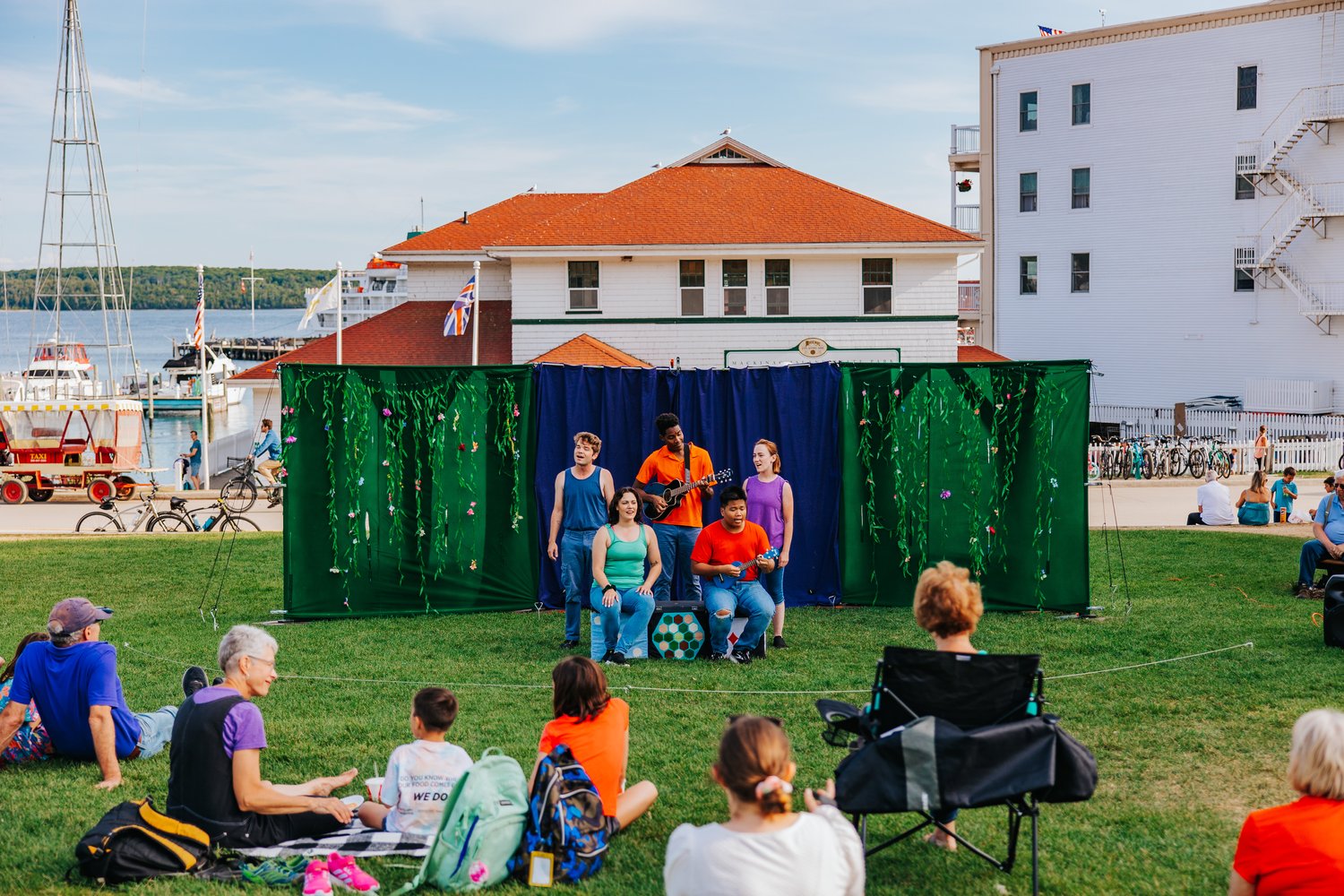
Actor Kristin Yates, who recently joined the company for her first season, said that Starling is “very mindful about making sure that the actors have the ability to express themselves artistically and bring themselves to Shakespeare.”
Yates is playing Viola in Starling’s performance of “Twelfth Night” this season.
“My version of Viola has a lot of Kristin in it, which is really lovely because I think it makes it so that Shakespeare will always be new and interesting,” she said. “It’s really exciting to get to discover who my Viola is.”
Because of Starling’s small cast, Yates is also playing Viola’s twin brother, Sebastian. Gender-blind casting is another long tradition when it comes to Shakespeare.
“Everybody’s playing multiple roles and multiple genders that may or may not align with how they identify,” Lillis said. “It’s a pretty fun way to do the plays.”
Fulfilling a lifelong dream
For Lillis, performing Shakespeare in the Midwest, especially on Mackinac Island each August, is like coming full circle.
She described a moment when she was a young kid vacationing with her parents on Mackinac Island.
“I was in the park in front of the fort on the island. And I was like, ‘Boy, it seems like there should be Shakespeare in this park,’” Lillis said.
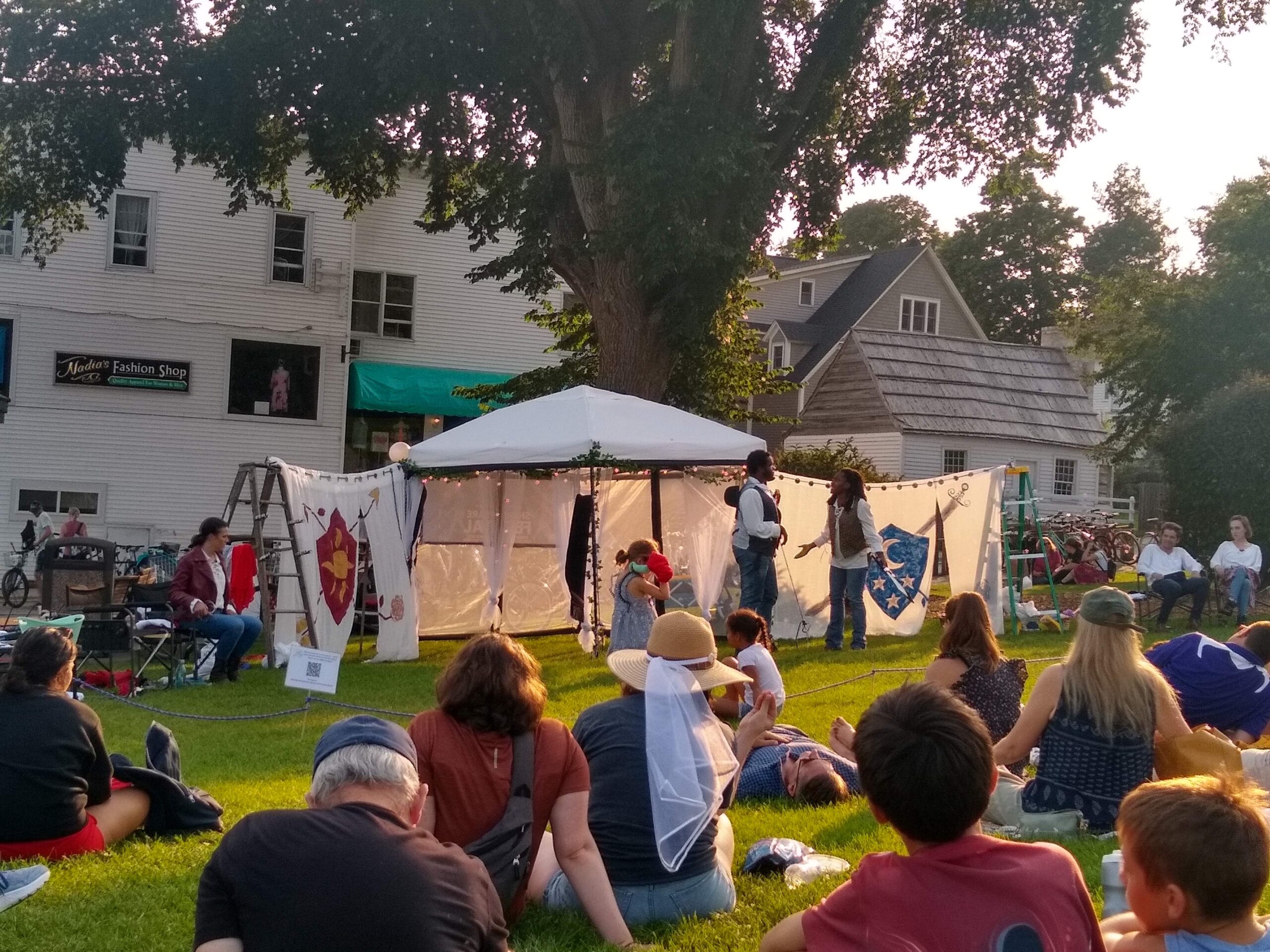
Lillis said that being from a small Midwest town, she understands the need for people outside of major cities to have access to the performing arts.
“Having Shakespeare right there in your backyard for free is not always the case. I think it’s really fun to bring these plays to places that maybe wouldn’t (otherwise) have it,” she said. “I’ll see little kids in the audience, and I’m like, ‘Oh, that was me years ago.’ It’s nice to see that.”
Wisconsin Public Radio, © Copyright 2025, Board of Regents of the University of Wisconsin System and Wisconsin Educational Communications Board.




